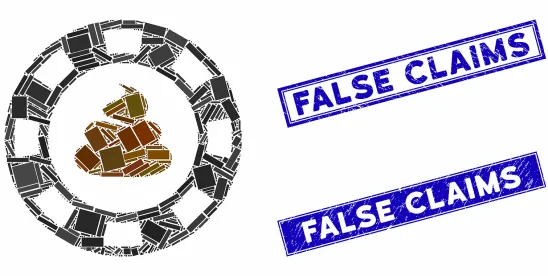What Happened
On September 30, 2024, Judge Kathryn Kimball Mizelle of the Middle District of Florida held that the False Claims Act’s (“FCA”) qui tam provision—which permits a private plaintiff to prosecute claims on behalf of the United States—violates the US Constitution’s Appointments Clause. See United States ex rel. Zafirov v. Fla. Med. Assocs., LLC, 2024 WL 4349242 (M.D. Fla. Sept. 30, 2024). This decision may have profound ramifications for future FCA litigation.
Analysis
The FCA
The FCA imposes liability on those who “knowingly present . . . a false or fraudulent claim [to the United States] for payment or approval” or knowingly withhold payments owed to the United States. 31 U.S.C. § 3729(a)-(b). To facilitate enforcement of the statute, the FCA permits private entities (“relators”) to bring qui tam lawsuits on behalf of the United States against defendants believed to have violated the FCA. The United States will then investigate the relator’s claims and either intervene and prosecute the FCA claims as a full-party plaintiff, or decline intervention leaving the relator to prosecute the action on the United States’ behalf. In either scenario, the relator is entitled to a percentage of the suit’s recovery, as well as their attorney’s fees. In limited circumstances, the United States may intervene to dismiss the relator’s action over the relator’s objection (for example, if the action threatens national security interests). Id. § 3730(c)(2). If the United States declines to intervene and the relator’s prosecution of the action leads to settlement, the United States will then intervene to control the settlement.
The Appointments Clause
The Appointments Clause of the Constitution provides that the President “shall nominate, and with the Advice and Consent of the Senate, shall appoint Ambassadors, other public Ministers and Consuls, Judges of the supreme Court, and all other Officers of the United States [except that] Congress may by Law vest the Appointment of such inferior Officers, as they think proper, in the President alone, in the Courts of Law, or in the Heads of Departments.” US Const. art. II, § 2, cl. 2. The Appointments Clause thus allows two constitutionally permissible approaches for appointing officers of the United States: (1) nomination by the President and confirmation by the Senate or (2) appointment of “inferior offices” without the need for Senate approval. Trump v. United States, 603 U.S. 593, 644 (Thomas, J., concurring) (2024). But under either approach, an officer of the United States must be “appointed” and thus ultimately answerable to the President as the head of the Executive branch, lest the officer’s role in the government violate the Constitution.
The Zafirov Decision
Dr. Clarissa Zafirov sued her employer and several other defendants, alleging they violated the FCA by misrepresenting patients’ medical conditions to Medicare, thereby obtaining greater reimbursement from Medicare than what was truly owed. After the United States initially declined to intervene, the defendants filed a motion for judgment on the pleadings, arguing that the FCA’s qui tam provision violated the Appointments Clause in Article II of the Constitution. The United States then intervened, but only to contest the defendants’ constitutional challenge; Zafirov otherwise remained in control of the litigation.
After finding that the defendants had not waived their constitutional challenges, the Court agreed that the FCA’s qui tam provision violated the Appointments Clause. The Court pointed out that the Appointments Clause requires all “officers” of the United States to be appointed by the president, the courts or executive departments heads. The FCA’s qui tam provision, however, does not provide for any appointment process; indeed, Zafirov and relators like her “self-appoint” to prosecute claims on behalf of the United States. So, the Court reasoned, the constitutionality of the qui tam provision boiled down to whether an FCA relator constitutes an “officer” of the United States subject to the Constitution’s appointment requirements.
The Court explained that an individual is an “officer” of the United States if they satisfy two elements: (1) they “exercise[] significant authority pursuant to the laws of the United States” and (2) they “occup[y] a continuing position established by law.” As to the first element, the Court found that an FCA relator exercises significant authority because relators have unfettered discretion to bring claims on the United States’ behalf for “daunting monetary penalties against private parties.” The Court likened this authority to that of federal prosecutors, who are indisputably appointed “officers” of the United States. In fact, the Court reasoned relators have even greater independence than federal prosecutors because relators can—on their own—decide to appeal FCA rulings, while federal prosecutors must obtain approval from the solicitor general to appeal.
As to the second element, the Court concluded that relators occupy a continuing position because the FCA’s qui tam provision perpetually maintains the “office of relator,” regardless of any intermittent vacancy. In other words, regardless of whether an individual relator is actually filling the position, the position of relator always exists under the FCA. The Court compared relators’ roles to those of special prosecutors and bank receivers: Although individual special prosecutors and bank receivers are often enlisted for a single project, such positions have been historically treated as “continuing” by federal courts. The Court also noted that qui tam actions continue even if a relator dies before the suit is resolved.
Having found that an FCA relator satisfies both the significant-authority and the continuing-position elements of an “officer,” the Court noted that the Constitution does not contain a “qui tam” exception to the Appointments Clause’s requirements. Moreover, the Court seemed to reject any potential that the government’s decision to intervene or to not intervene would remedy the relator’s lack of appointment. The Court pointed out that regardless of whether the government intervenes in the case, the relator continues to exercise significant control over the litigation. Critically, the relator’s control over the litigation arises exclusively from the FCA, not from any explicit appointment by the executive or judicial branch.
Because it found that relators satisfy the definition of “officer” and do not benefit from any exception to the Appointments Clause, the Court held that the FCA’s qui tam provision—in permitting self-appointment by relators—is unconstitutional, and dismissed Zafirov’s complaint.
Summary
For now, the Zafirov decision represents a significant victory for FCA defendants because it checks the ever-increasingly lucrative business of private entities bringing qui tam actions under the FCA. It remains too early to tell, however, what the ultimate effect of the Zafirov decision will be. The United States and Zafirov have already appealed Judge Mizelle’s decision to the Eleventh Circuit Court of Appeals, so it is likely that the nation will soon hear more about the constitutionality of the FCA’s qui tam provision. However, while Judge Mizelle’s holding and reasoning may appear to plow new ground, her opinion is not without support from others in the judiciary. For example, Justice Thomas has already opined that the FCA’s qui tam provision represents an unconstitutional “attempt to vest the authority to represent the United States in litigation in a party outside the Executive Branch.” United States ex rel. Polansky v. Exec. Health Res., Inc., 599 U.S. 419, 451 (2023) (Thomas, J., dissenting).





 />i
/>i
